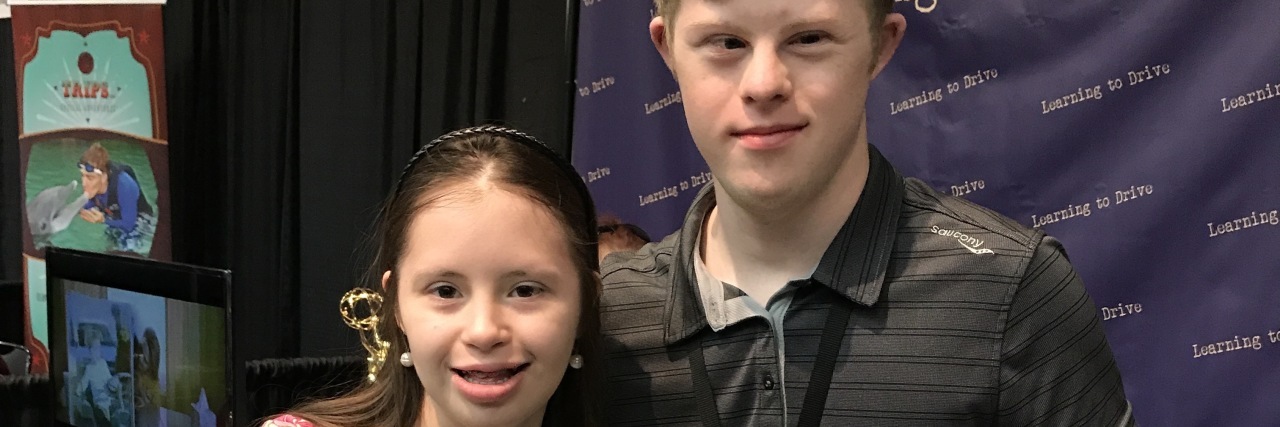Why Inclusion Role Models Matter for Young People With Down Syndrome
Five years ago I was putting together a presentation for my local SEAC, parents and administrators featuring youth with disabilities who were excelling across the country. One of those people was Connor Long, someone my daughter and I had been watching for a while. Connor is a handsome young man who was becoming known as an actor. He had already graduated from high school. Connor has Down syndrome just like my daughter, and lives in Colorado.
His father and I spoke; Connor gave his permission. Connor was a great example of someone who had grown up included in their school. His father was very proud of Connor’s high school experience and accomplishments, which included Connor reading his own poem at graduation. He mentioned that Connor had taken Latin I and liked it. He sent me Connor’s transcript, not because I requested it, but probably from that parental instinct we often have of proving what our children can do. I understand that — I still do that for my daughter. I am so grateful for that transcript and have kept it to this day.
Now it is five years later and my daughter is finally a senior. Today is the first day we studied Latin I together. It was fun, and we can both tell this is going to be a great class. Beyond that, Latin I is important. Latin is the root of so many languages. When we were studying today, my daughter did not just memorize vocabulary. We spoke about the tie many of the words had to English and Spanish words. It became obvious quickly that this class will help my daughter’s comprehension skills and so much more. It will add to her already well-rounded and solid education.
Not everyone wants or needs to take Latin, I understand that. I am writing this because of the importance of role models. I believe a higher power made sure I had Connor’s transcript and that it was always in the back of my mind. That is the power of relationships, reaching out and getting to know one another, and looking ahead to see what could be possible for your child. Role models can be invaluable resources for self-advocates and parents.
I am also writing this because sadly inclusion for youth with significant disabilities, especially in middle and high school, seems to be regressing. Connor was included and he graduated in 2012. My daughter is fully included and graduating in 2020. But that is not what I am seeing behind her, where I live and across the country. Our youth need solid educational foundations to prepare them for the world and give them more choices for their futures. When I and many others mention this, we hear excuses. That is not acceptable in 2019.
My daughter has met Connor and I have met his father. Since that presentation five years ago, Connor went on to become the first person with Down syndrome to win a local broadcasting Emmy. He continues to act, travel all over the world and raise awareness for people with disabilities via various outlets. He is very physically fit and continues to shine. He shows us the sky is the limit. That is the perfect attitude and role model for my senior and many more youth with Down syndrome. Thank you, Connor.

